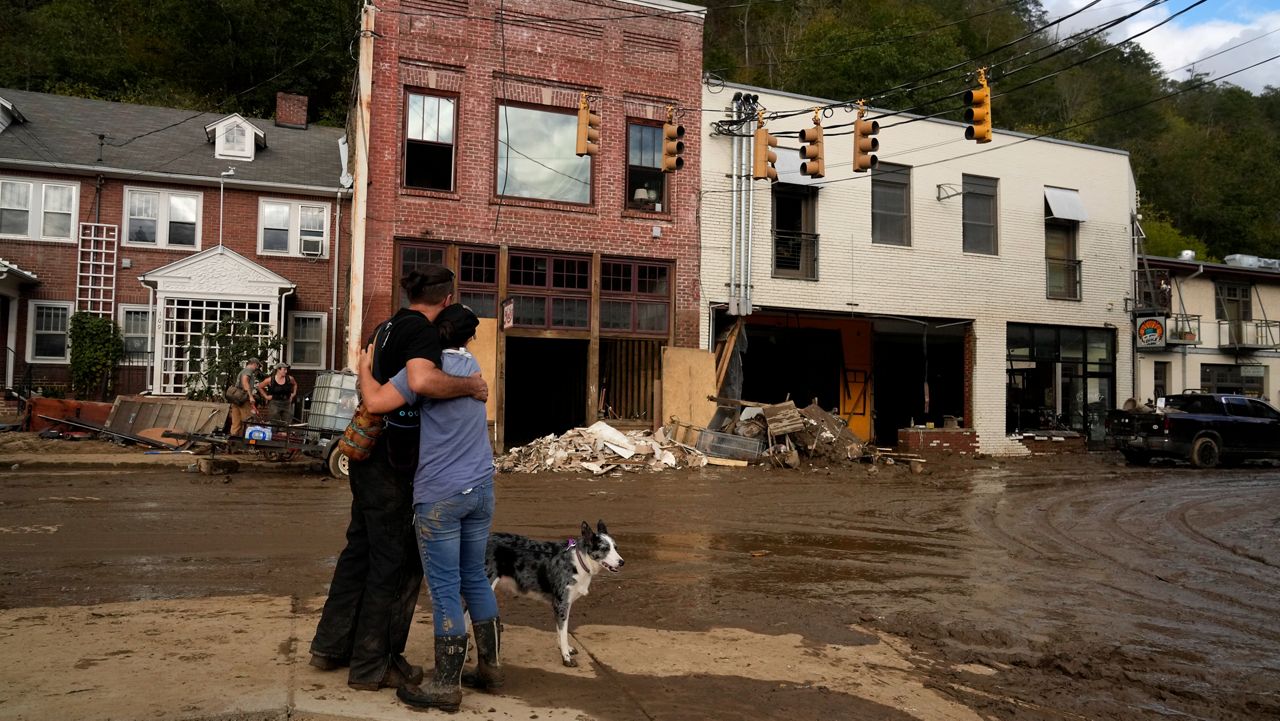JOHNSTON COUNTY, N.C. — The agriculture industry is the largest part of North Carolina’s economy, valued at $93 billion annually, according to N.C. State. However, farmers are facing an uphill battle as inflation continues to rise and trade remains uncertain.
Brandon Batten is a farmer in Johnston County and is worried about the recent uncertainty in agriculture
Batten says his fuel costs have tripled, and fertilizer costs have more than doubled
He is still unsure about his exact crop layout because not all of his contracts have been finalized
“The corn I'm selling today from last year's harvest I'm doing really well on at those input levels, but I'm not sure that I can make that work at this year's input levels even with the current prices that they are now,” said Brandon Batten, the manager of Triple B Farms.
On Monday, Batten filled his final truck load of 2021’s corn crop. This year, it’ll likely cost him more money to plant the same thing.
“Just the fuel for my tractors has basically tripled in cost. All of our inputs are up. Our fertilizer is up two and a half times,” Batten said.
Batten said the tensions between Ukraine and Russia are impacting fertilizer as well.
“It's hard to believe sitting here in eastern North Carolina that I'm competing on a global market, but that's truly what we do,” Batten said.“It's hard to believe sitting here in eastern North Carolina that I'm competing on a global market, but that's truly what we do,” Batten said.
“A lot of fertilizer it comes from that region whether it be nitrogen or potash or whatever,” Batten said. “Not only in price but the uncertainty of can it get out? Can we get it? Will we get it? Will there be a tariff on it? What kind of sanctions are in place? But also at what point will they ship it somewhere else because the tariffs are so high?”
Batten’s father and grandfather worked the same land, and now Batten is left to decide what he’ll risk spending money on with the hope of at least breaking even.
“Even now I don't fully know what my crop layout is going to be this year. We are trying to decide what we can be most profitable on, what our crop rotation needs to be, do we need to reduce acres of corn because of high fertilizer cost or increase soybeans? We are still having those conversations, and I’ll be planting in a month or less,” Batten said.
As farmers often do, Batten is taking a chance on almost 800,000 tobacco plants. The seedlings that fit in one greenhouse will be enough to fill 130 acres. However, Batten is still waiting to hear if someone wants to buy them.
“Right now I'm at risk basically because of world events, contracts have been delayed this year and because most of our crop is exported primarily to China and all the uncertainty in the world that process hasn't resolved yet,” Batten said.
For now, Batten focuses on what he can control because he believes the risks are worth it.
“I do love it. I enjoy it. There’s great days, but it's not always great. Sometimes it's hard, and sometimes you have to make hard decisions that could affect ultimately the future of your business or whether you'll even be in business,” Batten said. “I like to tell people they're a whole lot easier ways to make a living, but there's no better way in my opinion.”
Batten is always thinking ahead and says he’s confident that his farm will stay afloat as long as he’s willing to adapt. In order to educate people about farming, Batten runs a Facebook page called Farm Facts Friday, where he shares insight into the industry.
He also says he’s also worried about the future of agriculture in North Carolina as farmland is turned into housing developments and commercial properties.
According to the nonprofit American Farmland Trust, about 133 acres of the state’s farmland was lost every day between 2001 and 2016.








